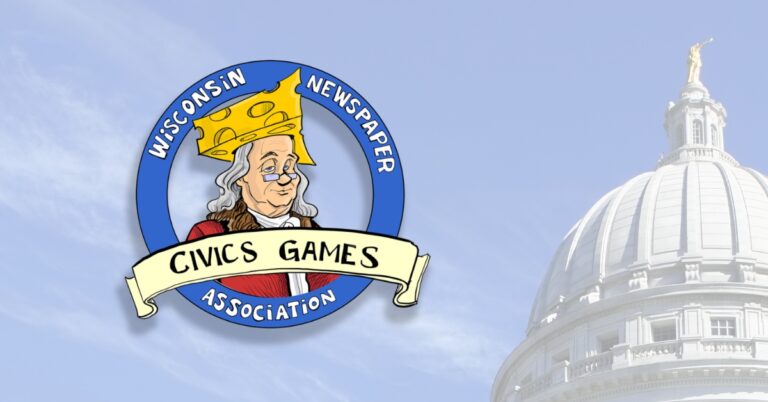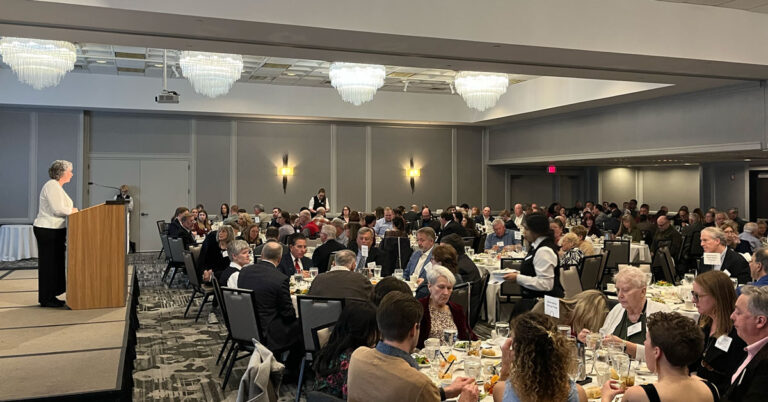The Capitol Report, produced by WisPolitics.com — a nonpartisan, Madison-based news service that specializes in coverage of government and politics — provides a weekly analysis of issues being
debated in Wisconsin state government. It is underwritten by the WNA and produced exclusively for its members. WisPolitics President Jeff Mayers is a former editor and reporter for the Associated Press and a former political writer for the Wisconsin State Journal. The WisPolitics logo can be downloaded here.
Editor’s note: This column is provided to Wisconsin Newspaper Association members by WisPolitics.com. Proper attribution to WisPolitics.com is appreciated. Also, please publish the tagline that is included at the end of the column.
Marquette academic freedom decision could have broader impact
The case of a Marquette University professor could have impact far beyond the Milwaukee campus.
The Wisconsin Institute for Law and Liberty, which handled the case for John McAdams, a conservative political science professor at Marquette, said universities everywhere should take notice.
“All across the country, academic freedom is under assault on campuses. Universities are treating academic freedom as the right to say only what administrators or the loudest factions on campus approve of,” the group said after the state Supreme Court on July 6 found the private school improperly suspended him for a blog post targeting an instructor he accused of shutting down a debate over gay marriage in her classroom.
“But …the Wisconsin Supreme Court struck a major blow in favor of free speech, delivering the unequivocal message that ‘academic freedom’ means just that,” WILL added. “Universities are free to create rules — even strict rules — about what their tenured professors can and cannot say publicly. What they cannot do is make up rules after the fact to punish a professor they want to get rid of.”
Marquette University insisted the case was not about academic freedom and if McAdams had published “the same blog without the student-teacher’s name or contact information, he would not have been disciplined.”
McAdams called that a “lie,” insisting he did not publish the student-teacher’s contact information, which he said was easily found through a Google search of Marquette’s site at the time of his post. He also knocked the university for blaming his decision to pass his blog post onto other media outlets for the threatening messages the student-teacher received.
“How much does free speech mean if your speech can be limited by what someone else, someone the journalist or blogger doesn’t even know, does in response to accurate information?” he asked.
The university, meanwhile, said the court’s decision discarded “a contractually established disciplinary process.” It also said it can’t “undo the significant harm” to the student-teacher’s academic career but vowed to ensure “that this doesn’t happen to another student.”
“To us, it was always clear that the professor’s behavior crossed the line,” the university said, adding, “Academic freedom must include responsibility.”
A university spokesman says Marquette expects McAdams to return to the classroom.
The political science professor said since he last taught in the fall 2014 semester, he has finished a book and secured a publisher for his next one. He said it might be too late to be added to this fall semester’s schedule but expected to be in the classroom again soon.
He said allowing Marquette to prevail would have opened the door to other higher ed institutions taking similar steps to limit academic freedom.
“If Marquette can weasel out of First Amendment protections, then so can other institutions,” McAdams said.
In its decision, the court rested its decision on principles of academic freedom and what Justice Daniel Kelly describes as a “structurally biased” process for settling employment disputes, the Faculty Hearing Committee.
“The undisputed facts show that the University breached its contract with Dr. (John) McAdams when it suspended him for engaging in activity protected by the contract’s guarantee of academic freedom,” Kelly wrote.
Beyond restoring political science professor McAdams’ employment at Marquette “with unimpaired rank, tenure, compensation, and benefits,” the high court also authorized further action to award the professor back pay.
Kelly, joined by three other conservative justices, overturned a circuit court’s decision that deferred to Marquette’s tribunal in deciding McAdams’ employment dispute. Justices Ann Walsh Bradley and Shirley Abrahamson dissented, while Justice Annette Ziegler did not participate in the case.
Marquette had suspended McAdams after he wrote a blog post calling out a teaching assistant for an exchange in her ethics class where she told a student some topics — specifically gay rights — are not up for debate and “some opinions are not appropriate, such as racist opinions, sexist opinions.”
The teaching assistant later complained she received threatening online messages stemming from the blog post and filed a formal complaint against McAdams. She left Marquette to attend the University of Colorado.
McAdams was initially suspended in December 2014, and he sued Marquette for breach of contract in 2016.
Kelly, in an unusual move, also authored a concurring opinion to his lead decision in which he slammed Marquette for suggesting its faculty committee was an adequate means to sort through the McAdams dispute. He equated the committee, comprised of seven faculty members, as a vehicle for Marquette to be its own judge.
He also noted one of its members before joining the committee wrote a blog post denouncing McAdams, suggesting it was a biased process.
Liberal Justice Ann Walsh Bradley argued the court disrespected “the time-honored and bargained-for shared governance procedures” by bypassing the Faculty Hearing Committee, and could jeopardize “institutional academic freedom” and shared governance at other universities.
“Apparently, the majority thinks it is in a better position to address concerns of academic freedom than a group of tenured faculty members who live the doctrine every day,” Bradley wrote in a dissent joined by Abrahamson.
The Capitol Report is written by editorial staff at WisPolitics.com, a nonpartisan, Madison-based news service that specializes in coverage of government and politics, and is distributed for publication by members of the Wisconsin Newspaper Association.
Copyright © WisPolitics.com



